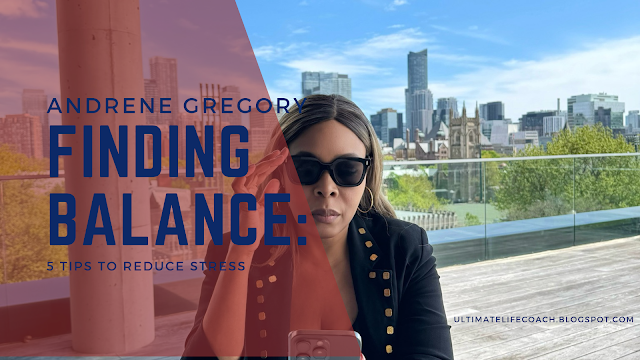In today's fast-paced world, achieving a work-life balance is a challenge many face. Juggling work, family, and personal time can often lead to stress, leaving us feeling overwhelmed and burnout. To help navigate these challenges, I've compiled five practical tips that have personally helped me reduce stress and find balance in my daily life.
1. Stay Hydrated
Staying hydrated might seem simple, but its impact on stress levels is significant. I remember a particularly hectic week at work where deadlines were looming, and I was running on caffeine and adrenaline. It wasn't until I started feeling dizzy and unfocused that I realized I had barely drank any water. Once I made a conscious effort to hydrate regularly, I noticed a remarkable improvement in my energy levels and overall mood.
Tip:
Keep a water bottle at your desk and set reminders to drink water throughout the day.
2. Be Kind to Yourself
We are often our harshest critics, which can exacerbate stress. During a particularly tough project, I found myself constantly criticizing my work and doubting my abilities. It wasn't until a friend reminded me to be kinder to myself that I started to see a change. I began practicing self-compassion, allowing myself to make mistakes and learn from them without judgment.
Tip:
Practice positive self-talk and remind yourself that it's okay to not be perfect.
3. Make Time for Self-Care
Tip:
Schedule regular self-care activities and treat them as non-negotiable appointments.
4. Don't Spread Yourself Too Thin
Tip:
Prioritize your commitments and learn to say no when necessary. It's better to do a few things well than many things poorly.
5. Take Time to Rest
Rest is crucial for managing stress. I used to think powering through without adequate rest was a sign of dedication. However, I soon realized that lack of rest only led to burnout. Taking breaks and ensuring I get enough sleep has made me more productive and less stressed.
Tip:
Incorporate short breaks throughout your day and ensure you get a good night's sleep.
Balancing work and life is an ongoing process, and it's important to find what works best for you. By staying hydrated, being kind to yourself, making time for self-care, not spreading yourself too thin, and taking time to rest, you can effectively reduce stress and achieve a healthier work-life balance. Remember, it's about progress, not perfection.

.jpg)
Comments
Post a Comment
Please be reasonable and respectful. Thank you.